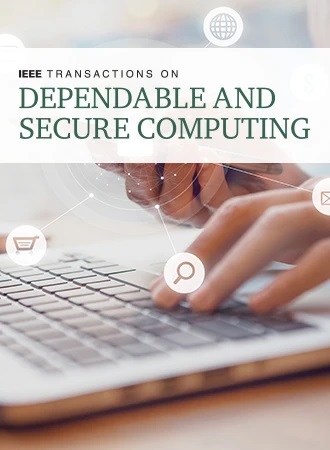I Still Know What You Did Last Summer: Inferring Sensitive User Activities on Messaging Applications Through Traffic Analysis
IF 7.5
2区 计算机科学
Q1 COMPUTER SCIENCE, HARDWARE & ARCHITECTURE
IEEE Transactions on Dependable and Secure Computing
Pub Date : 2023-09-01
DOI:10.1109/TDSC.2022.3218191
引用次数: 4
Abstract
Instant Messaging (IM) applications such as Signal, Telegram, and WhatsApp have become tremendously popular in recent years. Unfortunately, such IM services have been targets of governmental surveillance and censorship, as these services are home to public and private communications on socially and politically sensitive topics. To protect their clients, popular IM services deploy state-of-the-art encryption. Despite the use of advanced encryption, we show that popular IM applications leak sensitive information about their clients to adversaries merely monitoring their encrypted IM traffic, with no need for leveraging any software vulnerabilities of IM applications. Specifically, we devise traffic analysis attacks enabling an adversary to identify participants of target IM communications (e.g., forums) with high accuracies. We believe that our study demonstrates a significant, real-world threat to the users of such services. We demonstrate the practicality of our attacks through extensive experiments on real-world IM communications. We show that standard countermeasure techniques can degrade the effectiveness of these attacks. We hope our study will encourage IM providers to integrate effective traffic obfuscation into their software. In the meantime, we have designed a countermeasure system, called IMProxy that can be used by IM clients with no need for any support from IM providers. We demonstrate the effectiveness of IMProxy through simulation and experiments.我仍然知道你去年夏天做了什么:通过流量分析推断消息应用程序上的敏感用户活动
近年来,Signal、Telegram和WhatsApp等即时消息应用程序变得非常流行。不幸的是,此类即时通讯服务一直是政府监控和审查的目标,因为这些服务是关于社会和政治敏感话题的公共和私人通信的家园。为了保护客户,流行的IM服务部署了最先进的加密技术。尽管使用了高级加密,但我们发现,流行的IM应用程序只需监控其加密的IM流量,就可以将有关其客户端的敏感信息泄露给对手,而无需利用IM应用程序的任何软件漏洞。具体而言,我们设计了流量分析攻击,使对手能够高精度地识别目标IM通信(如论坛)的参与者。我们认为,我们的研究表明,这类服务的用户在现实世界中面临着重大威胁。我们通过对真实世界IM通信的大量实验来证明我们的攻击的实用性。我们表明,标准的对抗技术会降低这些攻击的有效性。我们希望我们的研究将鼓励IM提供商将有效的流量模糊技术集成到他们的软件中。与此同时,我们设计了一个名为IMProxy的对抗系统,IM客户端可以使用该系统,而不需要IM提供商的任何支持。我们通过仿真和实验证明了IMProxy的有效性。
本文章由计算机程序翻译,如有差异,请以英文原文为准。
求助全文
约1分钟内获得全文
求助全文
来源期刊

IEEE Transactions on Dependable and Secure Computing
工程技术-计算机:软件工程
CiteScore
11.20
自引率
5.50%
发文量
354
审稿时长
9 months
期刊介绍:
The "IEEE Transactions on Dependable and Secure Computing (TDSC)" is a prestigious journal that publishes high-quality, peer-reviewed research in the field of computer science, specifically targeting the development of dependable and secure computing systems and networks. This journal is dedicated to exploring the fundamental principles, methodologies, and mechanisms that enable the design, modeling, and evaluation of systems that meet the required levels of reliability, security, and performance.
The scope of TDSC includes research on measurement, modeling, and simulation techniques that contribute to the understanding and improvement of system performance under various constraints. It also covers the foundations necessary for the joint evaluation, verification, and design of systems that balance performance, security, and dependability.
By publishing archival research results, TDSC aims to provide a valuable resource for researchers, engineers, and practitioners working in the areas of cybersecurity, fault tolerance, and system reliability. The journal's focus on cutting-edge research ensures that it remains at the forefront of advancements in the field, promoting the development of technologies that are critical for the functioning of modern, complex systems.
 求助内容:
求助内容: 应助结果提醒方式:
应助结果提醒方式:


